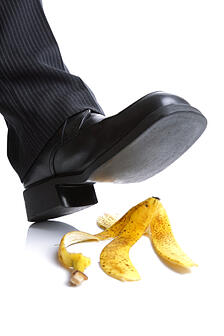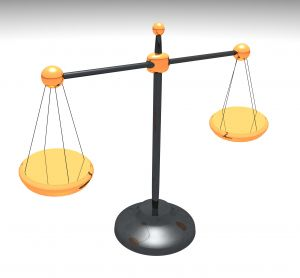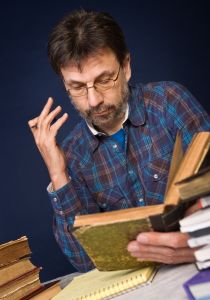Written by Beth Calvano

Read the most up-to-date information on the integrity of the research across industries, publishing in top journals, reputation and much more.
Written by Beth Calvano

 In a recent case at Arizona State University, Professor Matthew Whitaker appeared to have committed plagiarism, but an ASU investigative committee declared that his actions were “unintentional carelessness” instead of “systematic or substantial plagiarism.” The ruling did not sit well with many members of the academic community, including ASU professor Monica Green, who resigned her position in protest over the decision.
In a recent case at Arizona State University, Professor Matthew Whitaker appeared to have committed plagiarism, but an ASU investigative committee declared that his actions were “unintentional carelessness” instead of “systematic or substantial plagiarism.” The ruling did not sit well with many members of the academic community, including ASU professor Monica Green, who resigned her position in protest over the decision.
 The recent copyright suit brought against startup Boundless Learning by three major textbook publishers, Pearson, Cengage, and Macmillan Higher Ed serves as occasion, yet again, to revisit key themes that surface each time the narrative of education’s disruption by technology – especially via web-based innovations – is rehearsed. The suit came shortly after the announcement of an $8 million investment in Boundless, led by VC-firm, Venrock. Intriguingly, the suit also appears to attack the investors as well, underscoring the business opportunity (and loss thereof) that seems to obtain with any discussion that involves the Internet, new technology, and “disruption.” The second theme that we see is the well-worn “David vs. Goliath” story, and the last is the same story of education’s revolution at the hands of a web-based alternative.
The recent copyright suit brought against startup Boundless Learning by three major textbook publishers, Pearson, Cengage, and Macmillan Higher Ed serves as occasion, yet again, to revisit key themes that surface each time the narrative of education’s disruption by technology – especially via web-based innovations – is rehearsed. The suit came shortly after the announcement of an $8 million investment in Boundless, led by VC-firm, Venrock. Intriguingly, the suit also appears to attack the investors as well, underscoring the business opportunity (and loss thereof) that seems to obtain with any discussion that involves the Internet, new technology, and “disruption.” The second theme that we see is the well-worn “David vs. Goliath” story, and the last is the same story of education’s revolution at the hands of a web-based alternative.
Featuring: Davinder Malhotra, Professor of Finance at Philadelphia University
 Hungarian President, Pal Schmitt, has officially resigned due to plagiarism accusations. In Monday's vote by Hungary’s parliament, President Schmitt's resignation was accepted by a margin of 338-5. Hungary's Fidesz party, led by Prime Minister Victor Orban, will initiate negotiations with the country's other parties to find a successor for President Schmitt.
Hungarian President, Pal Schmitt, has officially resigned due to plagiarism accusations. In Monday's vote by Hungary’s parliament, President Schmitt's resignation was accepted by a margin of 338-5. Hungary's Fidesz party, led by Prime Minister Victor Orban, will initiate negotiations with the country's other parties to find a successor for President Schmitt.
 Techdirt recently published a very interesting article that examines the current state of copyright in academia. Building off of an article from QuestionCopyright, Techdirt columnist Glyn Moody poses the question of whether copyright is being effectively utilized for academics. The logic essentially says that academics are more interested in getting attribution for the ideas in their papers, rather than protecting the paper's specific wording.
Techdirt recently published a very interesting article that examines the current state of copyright in academia. Building off of an article from QuestionCopyright, Techdirt columnist Glyn Moody poses the question of whether copyright is being effectively utilized for academics. The logic essentially says that academics are more interested in getting attribution for the ideas in their papers, rather than protecting the paper's specific wording.
 The blog, TechDirt, recently published an article titled, “Is Policing Plagiarism at A University As Counterproductive As Trying To Stop Copyright Infringement?” The article postulates that creating a learning environment based on discovering plagiarism and punishing the culprits can backfire by producing a fearful and ineffective classroom atmosphere. The author likens this to the back-and-forth battle over copyright infringement between companies and users that often leaves both sides with a bad taste in their mouth; this type of ongoing battle can stifle creativity with an ‘angry us-vs.-them world.’
The blog, TechDirt, recently published an article titled, “Is Policing Plagiarism at A University As Counterproductive As Trying To Stop Copyright Infringement?” The article postulates that creating a learning environment based on discovering plagiarism and punishing the culprits can backfire by producing a fearful and ineffective classroom atmosphere. The author likens this to the back-and-forth battle over copyright infringement between companies and users that often leaves both sides with a bad taste in their mouth; this type of ongoing battle can stifle creativity with an ‘angry us-vs.-them world.’
 It is for this reason that growing instances of misconduct from our favorite newspapers and star reporters is so disconcerting.
It is for this reason that growing instances of misconduct from our favorite newspapers and star reporters is so disconcerting.

 The term ‘self-plagiarism’ might seem confusing to many people. After all, if you are the person who originally created a piece of content, how can it be considered plagiarism if you decide to reuse the material? Shouldn’t you be able to reuse your own work in any way you want?
The term ‘self-plagiarism’ might seem confusing to many people. After all, if you are the person who originally created a piece of content, how can it be considered plagiarism if you decide to reuse the material? Shouldn’t you be able to reuse your own work in any way you want?
© 2025 Turnitin, LLC. All rights reserved.